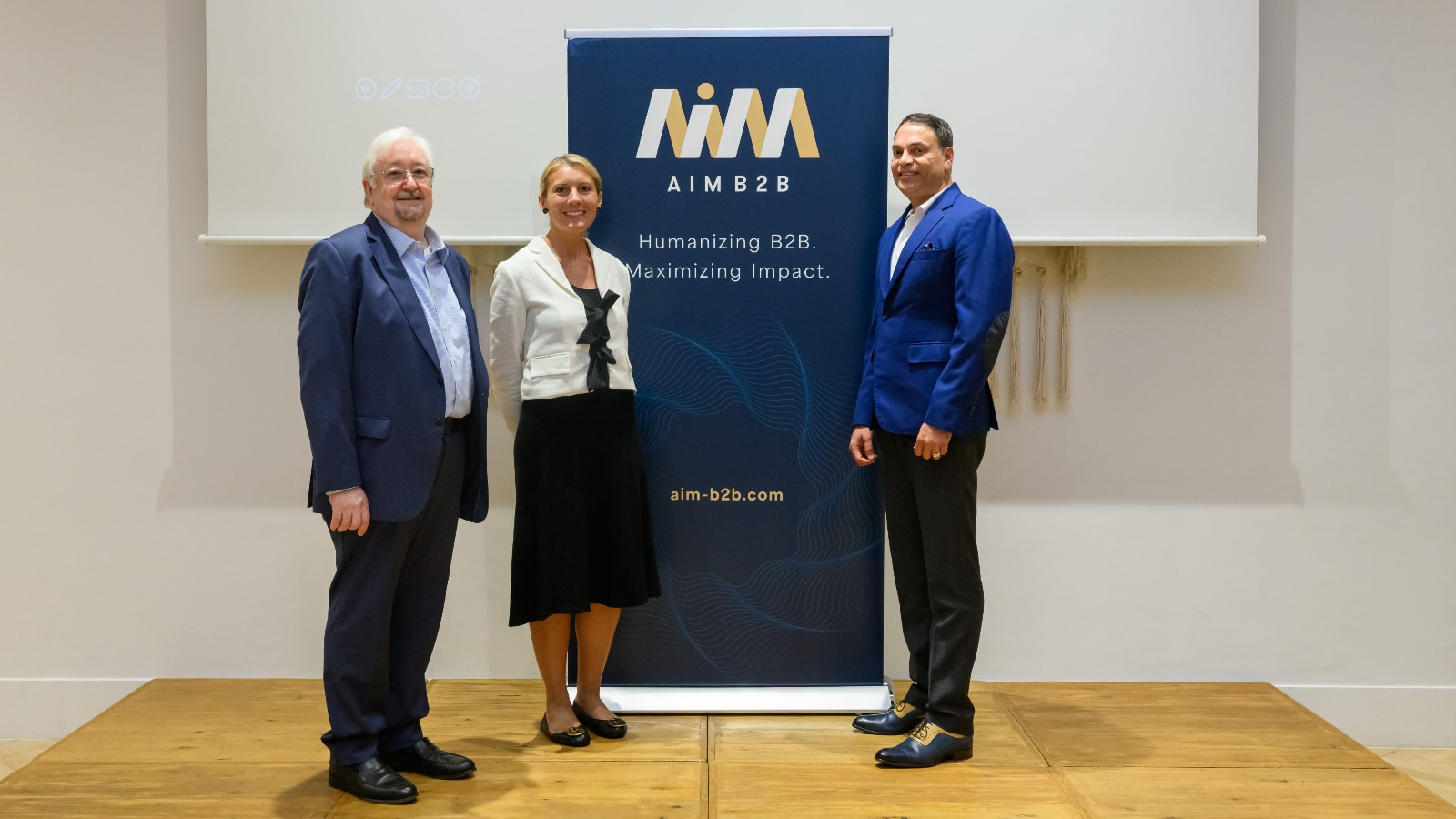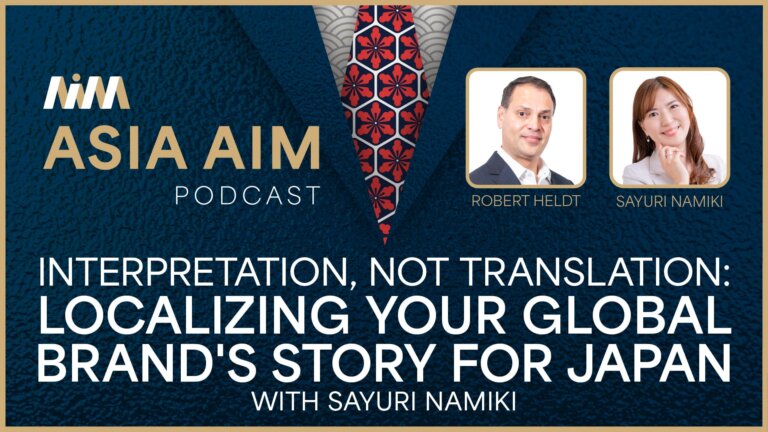- Blog
・ July 11, 2025
What is the Future of B2B Content? Key Insights from Leaders at Hitachi and Nomura

The future of B2B content hinges on earning attention through authentic, specialized insights, not simply focusing on output. According to senior communications leaders from Nomura Holdings and Hitachi Industrial Equipment Systems, successful brands must be noticeable, cultivate deep subject-matter expertise, and adopt a highly strategic approach to AI, guided by human judgment.
These insights were shared at a live panel event in Tokyo celebrating the launch of AIM B2B. The discussion, moderated by Robert Heldt, CEO of Custom Media, featured Stephanie Roberts, Chief Communications Officer at Hitachi Industrial Equipment Systems Co., Ltd., and Ross Rowbury, Senior Managing Director and Co-Head of Group Corporate Communications at Nomura Holdings. They explored the critical shifts required for modern B2B content marketing to succeed.
Why is ‘Earned Attention’ the New Standard for B2B Success?
In a market saturated with information, simply producing content is no longer enough. The new standard is “earned attention,” which requires a deep understanding of the customer and a commitment to providing unique value. It’s a shift from just telling a story to creating a story worth listening to.
Ross Rowbury of Nomura emphasized this point, stating that marketers must, “Think how to grab people’s attention. Be noticeable.” This begins with rigorous research to “understand the audience and what resonates with them.”

Adding to this, Stephanie Roberts of Hitachi noted that this is the foundation of genuine thought leadership. “Real thought leadership,” she explained, “is unique or different. Not rehashing others.” She observed that while sometimes in Japan “people don’t want to stand out,” differentiation is precisely what is needed to capture the attention of a sophisticated B2B audience.
How Must B2B Teams Evolve to Deliver Specialized Content?
To create content that earns attention, B2B teams must transition from relying on generalists to empowering specialists. This evolution is necessary to produce the credible, authentic thought leadership required to influence a complex and often anonymous buying committee.
“The sales process involves lots of people in the background,” Rowbury explained. “You need to reach them via thought leadership.” He pointed out that with a rise in lateral hires, companies have access to more internal specialists whose expertise is the raw material for powerful content.
A crucial part of this specialist-led approach is establishing a clear and consistent brand voice. Rowbury stressed the importance of defining the company’s “tone of voice” and using it to “edit for consistency,” ensuring all content, regardless of the author, feels authentic to the brand.
What is the Role of AI in Modern B2B Content?
AI is an unavoidable tool that presents both opportunities and significant risks. While there is peer pressure to adopt it, the panel agreed that its role is that of a co-pilot. It must be guided by expert human skill and judgment to be effective and safe.
Opportunities and Essential Skills:
- Effective Use Cases: Stephanie Roberts suggested AI is most useful for “short-form content and ideation.”
- The New Core Skill: She stressed that effective “prompting is important,” as is the non-negotiable step to manually “edit the content.” Authenticity requires human oversight.
- Fact-Checking is Critical: Roberts also warned that marketers must “manually check the data, the citations” and ask, “what are the sources?” before publishing any AI-assisted content.

Risks and Strategic Challenges:
- Brand Safety and Scams: Ross Rowbury highlighted the “malicious use of AI,” which can lead to scam websites and brand safety issues if your brand appears alongside them.
- Declining Website Traffic: Roberts raised a critical strategic question about the future impact of AI on discovery: “As AI leads to website traffic declines… what to do?” This signals a need to rethink how success is measured.
- Limitations of AI: AI is not a fit for all tasks. Roberts noted it is not good for “emotional, internal comms,” where human empathy is irreplaceable.
Ultimately, as Rowbury concluded, “Authenticity is vital.”
Frequently Asked Questions (FAQ)
According to Stephanie Roberts, a key challenge can be a cultural tendency to avoid standing out. However, she stresses that real thought leadership must be unique and different to cut through the noise and capture audience attention effectively.
The consensus is to use AI as a tool for ideation and drafting short-form content. To do so safely, marketers must become skilled at writing prompts, meticulously edit all output, and manually verify all data and sources to ensure accuracy and authenticity.
As Ross Rowbury explained, specialists are essential for creating credible thought leadership that resonates with the entire B2B buying committee. Their deep expertise ensures the content is authentic and valuable, which is necessary to build trust and influence complex purchasing decisions.
Building Content for What’s Next
The expert consensus is clear: the future of B2B marketing belongs to those who prioritize authenticity, cultivate deep expertise, and strategically deploy technology without ceding control. It is an approach built on earning the trust and attention of a well-informed audience.
AIM B2B is built to help modern marketing leaders navigate these challenges. To learn how we can help you build a content strategy that earns attention, contact the AIM B2B team today.

Share
Author
Category
- PR & Communication
- Content & Creative





